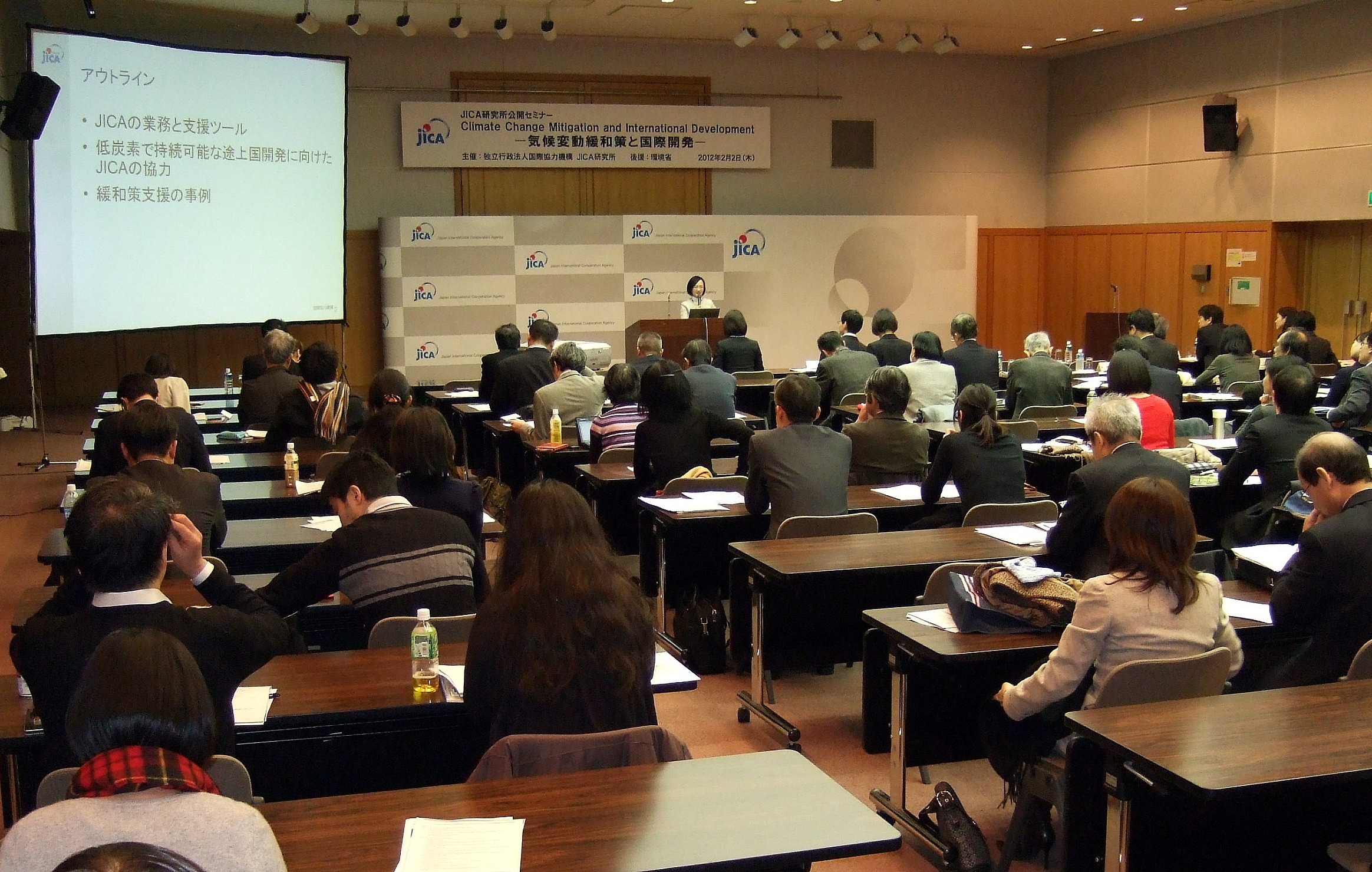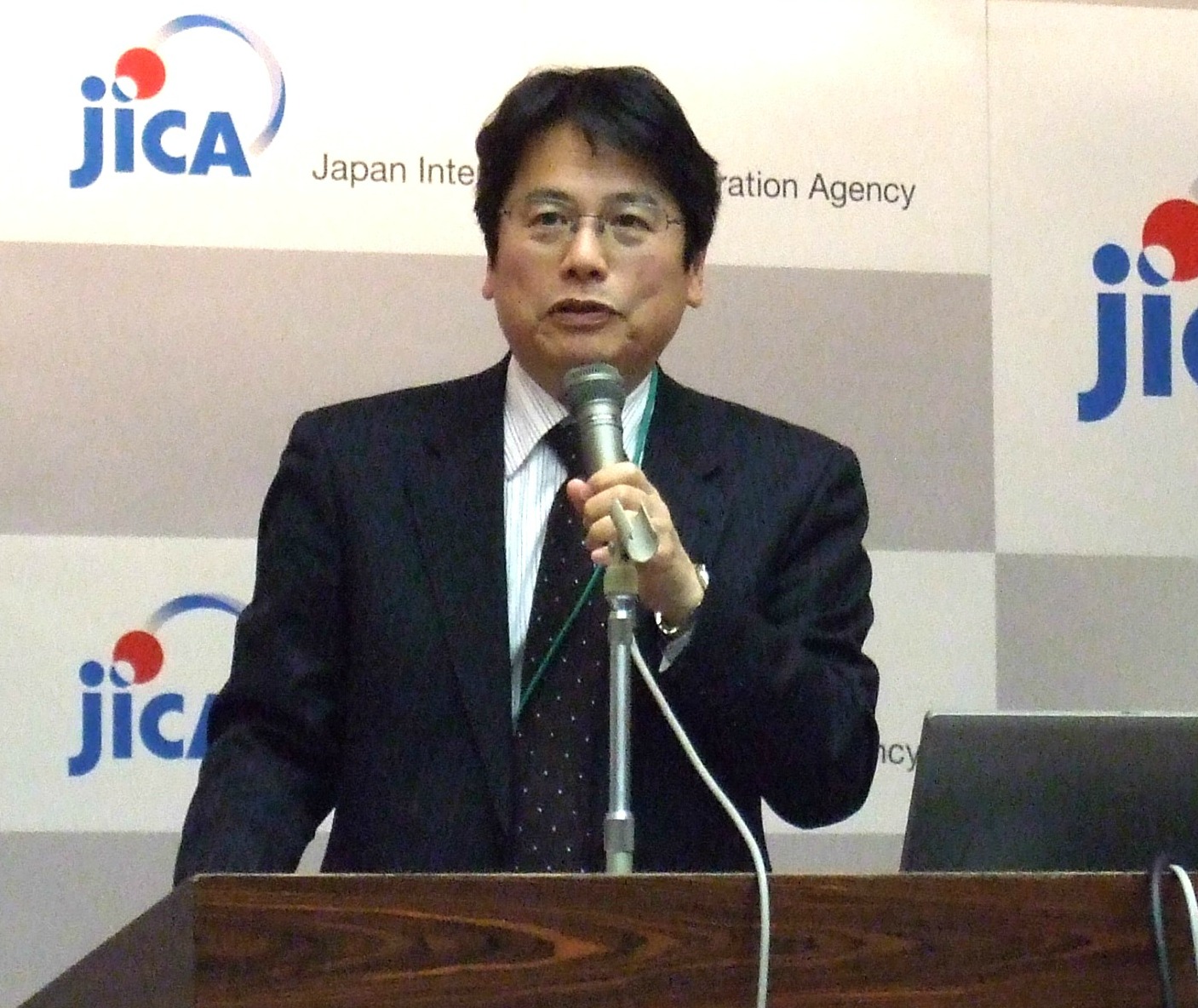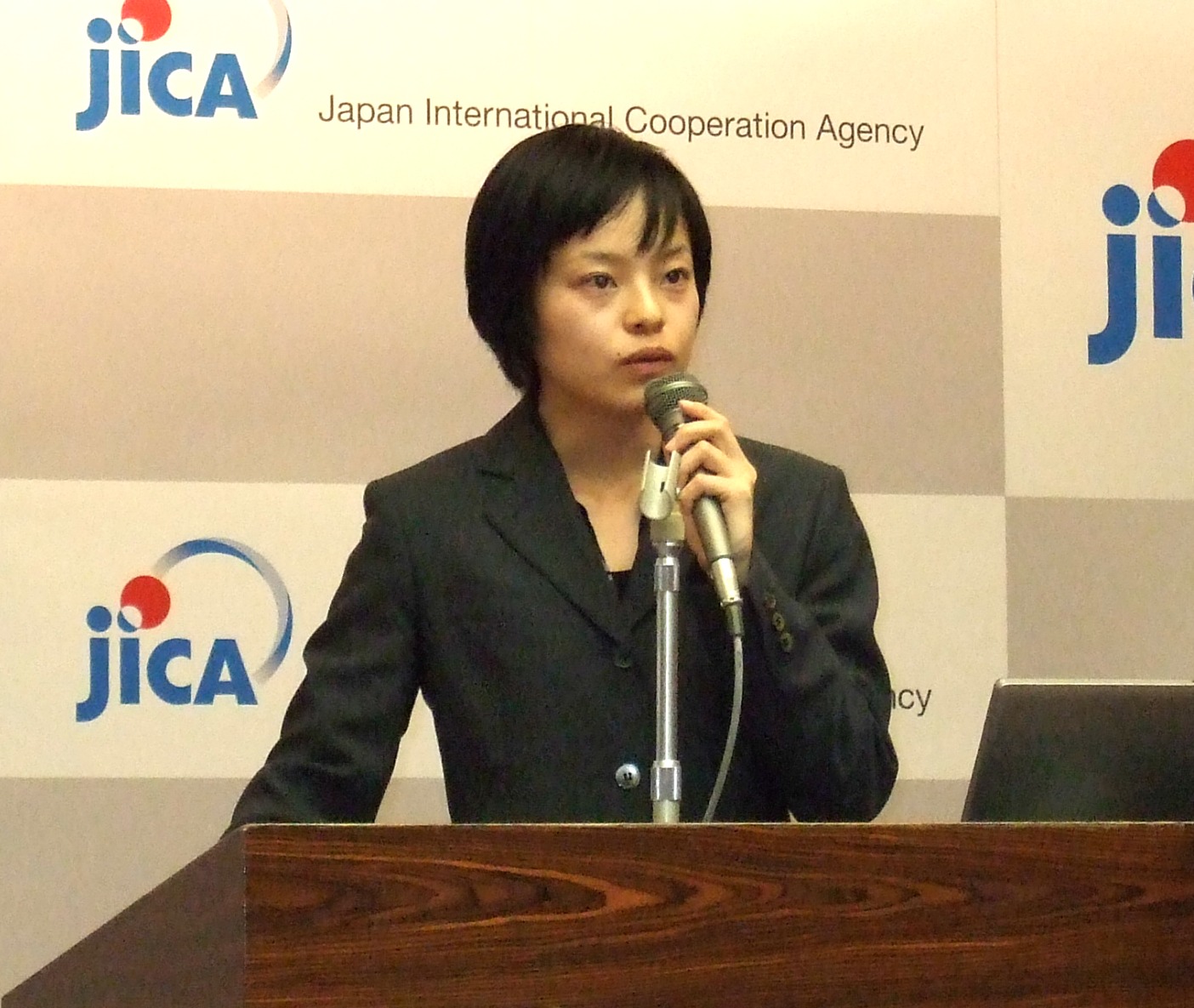JICA-RI Convened a Seminar on "Climate Change Mitigation and International Development"
2012.02.22

On February 2, JICA-RI held a public seminar titled "Climate Change Mitigation and International Development" at its premises in Ichigaya, Tokyo. The seminar also marked the release of a JICA-RI’s new book Climate Change Mitigation and Development Cooperation (Taylor & Francis, April 2012), which outlines international efforts for climate change mitigation to reduce greenhouse gas (GHG) emission along with specific case studies from Asia.
At the seminar, speakers reported on the trends of international mechanisms as well as cooperation initiatives for climate change mitigation. Six of them are contributing authors to the book and also involved in JICA-RI's research project "Mitigation of Climate Change in Developing Countries." They are: Ryo Fujikura (JICA-RI’s visiting fellow and professor of Hosei University), Yasuko Kameyama (head of Sustainable Social Systems Section at the National Institute for Environmental Studies), Mitsuo Matsumoto (director of REDD Research and Development Center, Forestry and Forest Products Research Institute), Hidenori Nakamura (associate researcher of Institute for Global Environmental Strategies (IGES)), Taro Katsurai (permanent expert at International Development Associates), and JICA-RI’s Research Associate Tomoyo Toyota. Each gave a presentation on their research while Junko Morizane, an officer at Office for Climate Change, Global Environment Department, JICA, shared information about JICA’s efforts in promoting mitigation measures in developing countries from perspective of an ODA implementing agency.
Project Head Fujikura opened the event by introducing an outline of the book. "There is a pressing need for climate change mitigation in Asia where countries – especially developing countries – are experiencing rapid population growth, and economic development is expected to bring energy consumption surge,” Fujikura explained, saying that was the reason why they focused on case studies of Asia.
Kameyama of the National Institute for Environmental Studies gave a presentation titled "International Efforts in Tackling Climate Change and Mitigation Actions of Developing Countries." Touching on the international negotiations on global warming prevention, she remarked that "developing countries are the key to negotiation progress."

Ryo Fujikura visiting fellow
Matsumoto of the Forestry and Forest Products Research Institute discussed the mitigation actions for REDD+ and outstanding issues. REDD+ is an effort to preserve forest resources with the aim to control GHG emissions caused by deforestation and forest degradation. "Forest resources generally function as a sink for carbon dioxide, but deforestation and forest degradation account for nearly 20% of current global carbon emissions," he reported, adding that international discussions are underway to create a system that offers incentives to conserve forested lands.
IGES's Nakamura described the potential of international inter-city collaboration for low-carbon style development. He pointed out that while cities can be the "problem source" of GHG emission, they can also play the role of "problem-solver," and that inter-city collaboration would allow more effective approaches to climate change such as developing sustainable cities. With international negotiations struggling to make progress, Nakamura stressed that it is crucial to expand existing inter-city cooperation and regional efforts to move towards a low-carbon society.

Tomoyo Toyota research associate
Katsurai of International Development Associates spoke about the effectiveness of financial intermediary loans in tackling climate change with case studies of Indonesia and Vietnam. Unlike project loans, financial intermediary loans are implemented through the general budget of recipient countries. "With financial intermediary loans, climate change initiatives can be promoted through the revisions of policies and systems (such as a Cabinet order on renewable energy and laws like the Energy Conservation Law)," Katsurai argued.
Research Associate Toyota's presentation was titled "The Greenhouse Gas Reduction Effect of Yen Loans: Case study of the Power Generation Sector." Based on the idea that ODA such as infrastructure building can be effective in reducing environmental stress, Toyota quantitatively assessed the GHG reduction effect of yen loans in the power generation sector. Analysis revealed that the GHG reduction effect in 2010 reached 12.3 million tons in CO2, which accounts for 1% of Japan's emissions, she said.
*Climate change initiatives can be broadly divided into two types: mitigation measures which aim to reduce GHG, and adaptation measures which adapt socio-economic systems to reduce the impacts of climate change.
**The new book is a follow-up to the previous book Climate Change Adaptation and International Development (Earthscan), which was published last year.

事業事前評価表(地球規模課題対応国際科学技術協力(SATREPS)).国際協力機構 地球環境部 . 防災第一チーム. 1.案件名.国 名: フィリピン共和国.

事業事前評価表(地球規模課題対応国際科学技術協力(SATREPS)).国際協力機構 地球環境部 . 防災第一チーム. 1.案件名.国 名: フィリピン共和国.

事業事前評価表(地球規模課題対応国際科学技術協力(SATREPS)).国際協力機構 地球環境部 . 防災第一チーム. 1.案件名.国 名: フィリピン共和国.

事業事前評価表(地球規模課題対応国際科学技術協力(SATREPS)).国際協力機構 地球環境部 . 防災第一チーム. 1.案件名.国 名: フィリピン共和国.

事業事前評価表(地球規模課題対応国際科学技術協力(SATREPS)).国際協力機構 地球環境部 . 防災第一チーム. 1.案件名.国 名: フィリピン共和国.
scroll